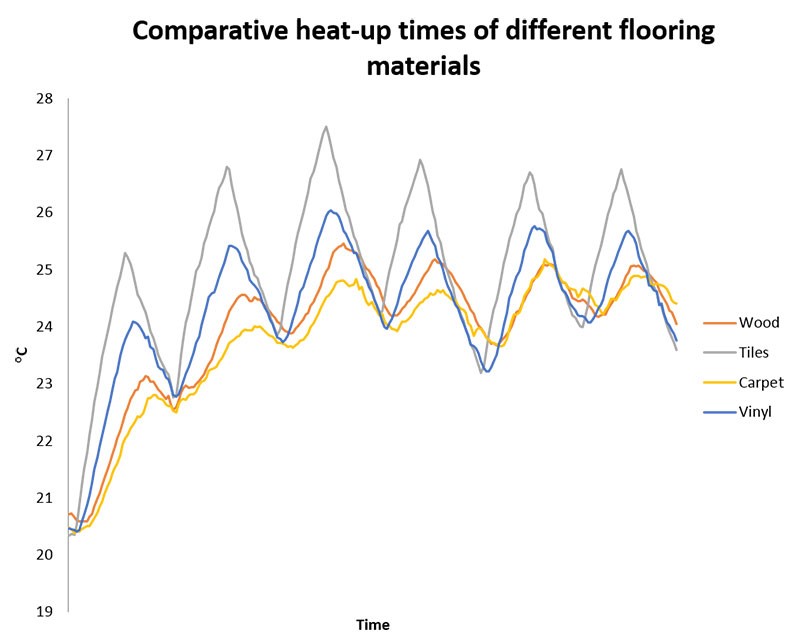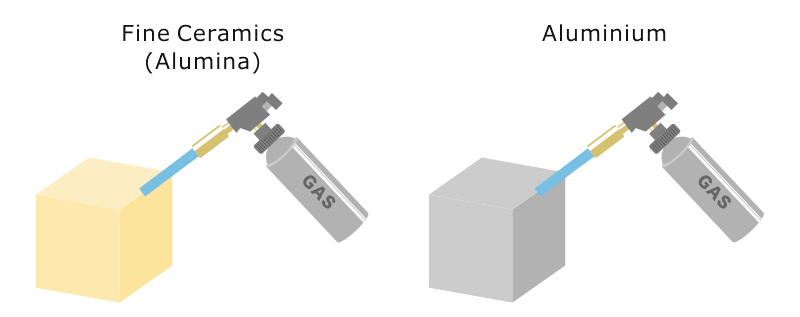With an almost limitless selection of color and designs as well as the ability to withstand heat ceramic tiles are a common choice for kitchen counter tops.
Ceramic tile heat capacity.
The ability of a material to absorb heat from its surrounding isits heat capacity.
It s ideal for remodeling bathrooms and kitchens to add radiant floor heating and offers an upscale option when designing new construction floor warming.
This process results in porcelain tiles being more durable and heat resistant than ceramic tiles.
3 4 temperature of marble is measured during heat gain 18 4 1 heat loss of tile 20 4 2 heat loss of marble 21 4 3 heat loss of window glass 22 4 4 heat loss of mild steel 23 4 5 heat loss of aluminium 24 4 6 heat loss of perspex 25 4 7 heat gain of tile 27 4 8 heat gain of marble 28.
Breaking strength a measure of the breaking strength of tile with test values astm c648 expressed in pounds force.
Something to remember is that the thickness of the chosen ceramic or porcelain floor tile will have an impact on heat up times a thicker tile taking longer to be heated by a floor heater than a slimmer one.
And offers an ultra thin low profile system that installs beneath tile stone and even vinyl or laminate flooring.
Heat capacity the heat capacity of a substance is the amount of heat required to change its temperature by one degree and has units of energy per degree.
Electric heating of a mass electric heating of an object or mass energy supply and temperature change.
Minimum value for glazed or unglazed mosaic quarry or paver tile is 250 pounds.
Samples of non ceramic tiles made of stone glass metal concrete or other.
Porcelain is a type of ceramic.
M material mass.
Ceramic tiles are heat resistant but not necessarily heat proof.
If you re installing a stove base set it in place before you set the wall tile.
Can ceramic withstand heat.
Set the bottom row of tiles field tiles first then the edge tiles if any inserting spacers as you go.
Heat capacity is amount of heat required to raise material temperature by one unit.
Ceramic materials properties physical properties of ceramics.
Ceramic materials have high heat capacity and have both ionic and covalent bonds.
Spread a coat of heat resistant epoxy mortar on the backerboard.
Specific heat capacity is amount of heat required to raise temperature of unit mass of material by one unit.
Conventional ceramics including bricks and tiles are well known for.
Porcelain and ceramic tiles can be heated up to 84 f 29 c an optimal comfort temperature for any room in your home.
C δq mδt where c specific heat capacity.
The clays used to make porcelain tile consist of a higher density and they re fired longer at a higher temperature than ceramic.
The suntouch floor heating mat measures 32 ft.
Hold a piece of 1x lumber against the sides of the heat shield to keep the edge tiles flush.
Specific heat capacity of ceramic materials is higher than that of metals.
δt temperature rise.
Minimum value for glazed wall tile is 90 pounds.









